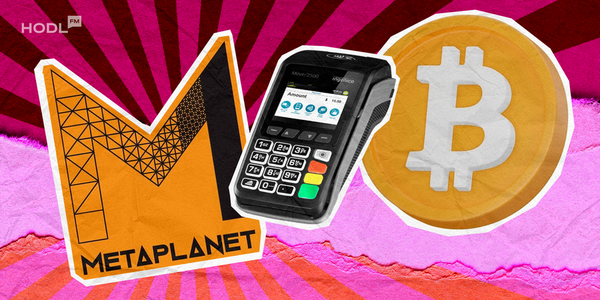India has been crowned “global leader in cryptocurrency adoption” for the second consecutive year, according to a recent report from Chainalysis. The report titled “2024 Geography of Cryptocurrency Report” offers intriguing insights into regional trends in crypto adoption.
More: Binance Makes Comeback To India After Serving 7-month Ban
Check out our first 2024 Geography of Cryptocurrency Report preview! Read to learn about crypto adoption in Central & Southern Asia and Oceania (CSAO), including Singapore’s payments landscape and trading in Indonesia: https://t.co/WKOsqiztLL
— Chainalysis (@chainalysis) September 11, 2024
On a regional scale, the performance of the Central & Southern Asia and Oceania (CSAO) region was another major highlight of the report.
The CSAO region, which includes India, Singapore, and Indonesia, solidified its position as the third-largest crypto region globally. This region alone accounted for 16.6% of the global value received, as well as over $750 billion in crypto inflows between July 2023 and June 2024.
India is #1 again! 🇮🇳🚀 Our 2024 Global Crypto Adoption Index is out, with the top 10 countries spread across 5 continents. Central & Southern Asia and Oceania (CSAO) are leading the way! 🌍💰
— Crypto Crown Sahil Dubey (@ICryptoCrown) September 12, 2024
#CryptoAdoption #India #GlobalCrypto pic.twitter.com/JR9i19K6Py
Let's break down the key points:
- India leads global crypto adoption for the second consecutive year, with the Central & Southern Asia and Oceania (CSAO) region accounting for over $750 billion in crypto inflows.
- Singapore emerges as a hub for crypto payment services, with a surge in merchant services receiving nearly $1 billion in crypto in Q2 2024.
- Indonesia's crypto market experiences explosive growth of nearly 200% year-over-year, driven primarily by trading activity.
- Seven of the top 20 countries in Chainalysis' Global Adoption Index are from the CSAO region, with India, Indonesia, and Vietnam ranking among the top five.
- Despite regulatory challenges, the future of crypto adoption in India, Singapore, and Indonesia looks promising, with potential for further growth in the sector.
Data from Chainalysis’s report revealed how resilient India's crypto ecosystem is despite going through multiple regulatory hurdles in recent years.
First, we witnessed the Indian government impose a 30% capital gains tax and a 1% TDS on all crypto transactions in the country through the Finance Act 2022. This move caused a dip in users across Indian exchanges.
Vikram Rangala, executive director of ZebPay, commented on the aftermath of the policy but remained optimistic towards the future.
In a statement during an interview, he said, "Earlier, we had a flight of investors away from Indian exchanges to global exchanges because of high taxes. I hope that, with regulatory clarity, we'll also get a more workable tax arrangement that promotes innovation and brings all aspects of crypto and Web3 into the economy in a sustainable way.”
Related: Japan Becomes the Land of Web 3!
In December 2023, the Financial Intelligence Unit (FIU) also issued ban notices to nine offshore exchanges for non-compliance with anti-money laundering laws. However, the impact was short-lived, as users found workarounds to access these platforms.
INDIA BANS BYBIT, BITGET, BITMART
— Crypto Town Hall (@Crypto_TownHall) August 30, 2024
Bybit, Bitget, and Bitmart have been booted from the Play Store by the Indian government, marking a serious crackdown on crypto exchanges dodging the country’s regulatory requirements.
Citing failures to comply with the Prevention of Money… pic.twitter.com/tAclzeChfu
Looking towards Singapore, the Chainalysis's report indicated that the country’s crypto market is experiencing a notable shift, with increased interest from retail and professional investors. This change is driven by the Monetary Authority of Singapore's (MAS) efforts to position the city-state as a hub for crypto payment services.
NEW: Singapore has no intentions of banning crypto and instead wants to become a crypto global hub
— Blockworks (@Blockworks_) November 2, 2021
- Monetary Authority of Singapore pic.twitter.com/SrQed6gohu
Local startups and established players in Singapore have started adopting and accepting digital currencies for everyday purchases. In March 2024, super-app Grab began accepting crypto top-ups for its e-wallet, allowing users to make payments using popular cryptocurrencies and stablecoins.
Notably, in the second quarter of 2024, the total value in crypto received by merchant services in Singapore reached nearly $1 billion. This figure is significantly higher than any other quarter in the past two years.
Indonesia's crypto market also showed evidence of an explosive growth, with a year-over-year increase of nearly 200%. This surge is primarily driven by trading activity, as Indonesians seek new investment opportunities and quick profits in the digital asset space.

Disclaimer: All materials on this site are for informational purposes only. None of the material should be interpreted as investment advice. Please note that despite the nature of much of the material created and hosted on this website, HODL FM is not a financial reference resource and the opinions of authors and other contributors are their own and should not be taken as financial advice. If you require advice of this sort, HODL FM strongly recommends contacting a qualified industry professional.





